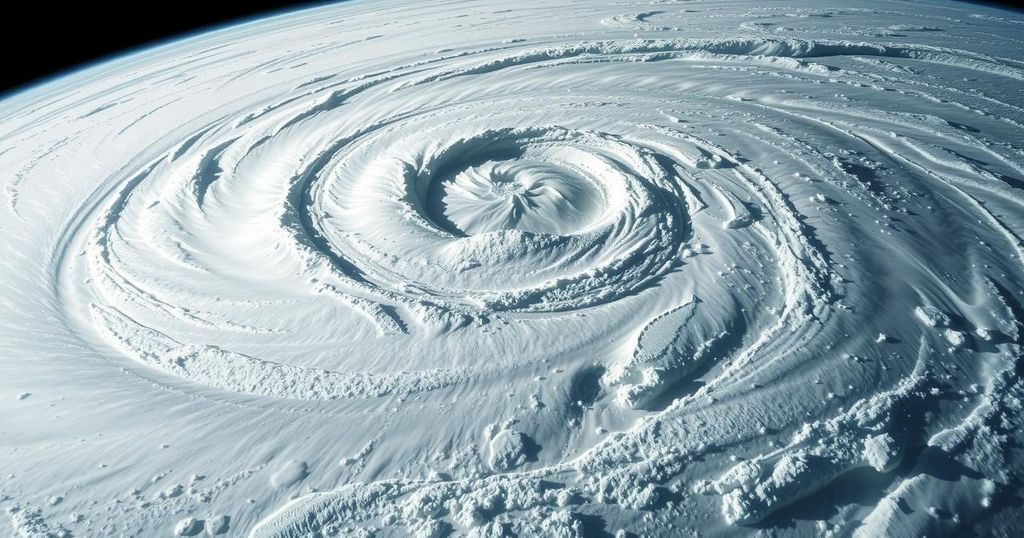Cyclone Chido: A Catastrophic Storm Devastates Mayotte and Impacts Mozambique

Cyclone Chido, a powerful Category 4 storm, struck Mayotte on December 14, 2024, leading to extensive loss of life and widespread destruction. NASA imagery documented the devastation. French officials have recognized this as an unprecedented disaster, with recovery efforts hindered by the island’s economic challenges. The cyclone also impacted Mozambique, resulting in further casualties and damage.
On December 14, 2024, Cyclone Chido unleashed catastrophic destruction on the islands of Mayotte, as captured by powerful satellite imagery released by NASA. The cyclone, a strong Category 4 hurricane, exhibited peak winds of 155 miles per hour, wreaking havoc on the French overseas territory in the Indian Ocean. Despite initial reports of extensive devastation and numerous casualties, only 21 deaths were confirmed by Tortoise Media as of Tuesday morning.
Cyclone Chido originated as a tropical disturbance on December 5, rapidly intensifying and impacting the Mauritian islands before making landfall on Mayotte. The satellite images, specifically from the VIIRS aboard the NOAA-20 satellite, depicted the island engulfed by the storm shortly after it struck. French authorities, including Minister of the Interior Bruno Retailleau and President Emmanuel Macron, expressed alarm over the unprecedented devastation.
Météo-France recognized Chido as the strongest storm to impact Mayotte in over nine decades, leading to widespread structural damage, especially in the capital, Mamoudzou. Key infrastructure suffered severe impairment, including hospitals and airports. Power outages affected tens of thousands of residents, complicating recovery efforts, particularly in France’s most impoverished territory.
Following the impact on Mayotte, Cyclone Chido proceeded to Mozambique, where its aftermath affected approximately 174,000 individuals, resulting in at least 34 fatalities and the destruction of 35,000 homes. Reports indicate that the cyclone will dissipate over Zimbabwe by Tuesday.
Cyclones pose a significant threat to tropical regions, particularly those with limited infrastructure. The recent event of Cyclone Chido exemplifies the formidable power of such storms, which can lead to extensive loss of life and extensive material damage. The impact on Mayotte, a French territory with pronounced economic challenges, underscores the heightened vulnerability of economically disadvantaged regions to extreme weather events, prompting discussions on emergency response and recovery measures following natural disasters. Additionally, cyclone formation is influenced by environmental factors such as warm sea surface temperatures and low wind shear, which can sustain powerful storm systems. The ongoing challenges in maintaining resilient infrastructure against the backdrop of climate change warrant continued scrutiny and investment. The regional consequences of such cyclones extend beyond initial landfall, as evidenced by Cyclone Chido’s subsequent impact on Mozambique, highlighting the interconnected nature of climate-related disasters.
In summary, Cyclone Chido’s landfall in Mayotte has been described as a historical disaster, revealing the vulnerabilities of the island’s infrastructure and population. The widespread destruction has prompted immediate responses from French officials, emphasizing the need for urgent recovery efforts in a region already grappling with economic hardship. Moving forward, the ramifications of such cyclones serve as a pressing reminder of the impacts of climate change and the importance of robust emergency preparedness.
Original Source: www.newsweek.com






